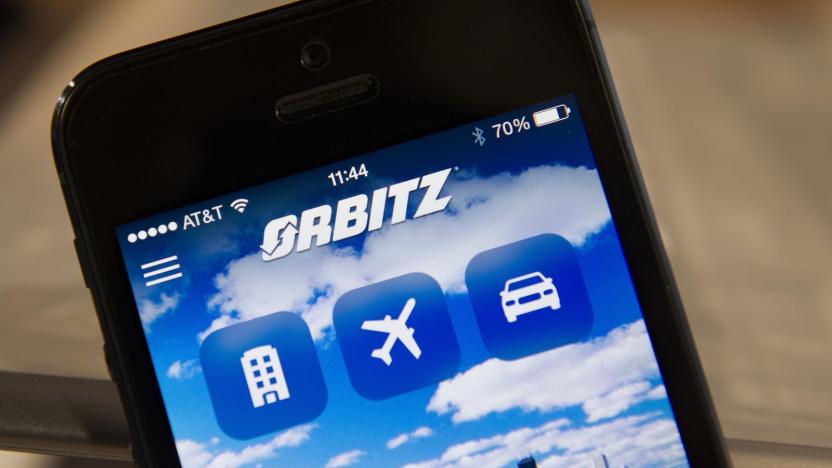orbitz
Latest

Orbitz data breach exposed 880,000 payment cards
Orbitz announced today that it has discovered evidence of a data breach, making it just another of the many companies recently afflicted. Between October and December of last year, hackers may have accessed consumer data submitted to a legacy website between January 1, 2016 and June 22, 2016. Additionally, Orbitz partner platform data submitted between January 1, 2016 and December 22, 2017 may also have been breached. The company discovered signs of the breach on March 1st and estimates that approximately 880,000 credit cards may have been impacted. While social security numbers, passport and travel itinerary information don't appear to have been accessed, names, payment card information, dates of birth, phone numbers, email addresses, physical and billing addresses and gender may have been. However, Orbitz said that it doesn't have direct evidence that any of this information was actually stolen. Besides information brokers like Equifax, travel-related services have been juicy targets for hackers with tons of stored IDs -- hotel chains like Hyatt, Hilton and Intercontinental have all been hit.

Google is changing how other sites use its flight data
Google is getting serious about its role as a travel service. Come April 10, 2018 the search giant will shut down access to its QPX Express API that's used by the likes of Kayak and Orbitz for airfare data, as spotted by Hacker News. This could seriously affect those sites' customers. Travel listings are one thing, but if you've stored a ton of reward points with one and it isn't able to fetch flight times and prices for your a trip next summer, that could cause some headaches.

Sign into Netflix straight from your Google account
You've been able to sign into third-party websites with your Google credentials for years, but now the company is broadening out the places that info can take you. On its Developer Blog, the outfit is talking up its new Identity Platform, a suite of developer tools that let others build "frictionless" entry to name-brand sites via the Smart Lock password manager. The biggest name on the list of early partners is Netflix, which will now let viewers keep watching on their Android devices without having to re-enter their subscription details.

Expedia buys Orbitz to expand its online travel empire
Looking to extend its reach with folks who book travel reservations online, Expedia is snatching up the competition with a quickness. Today, the web-based travel agency announced that it's purchasing Orbitz for around $1.6 billion, so the most popular option in the US for searching flights, hotels and more on the web gains the business of the third-ranked site. The sale also includes CheapTickets, ebookers and Hotel Club in addition to a couple of B2B brands. "This acquisition will allow us to deliver best-in-class experiences to an even wider set of travelers all over the world," said Expedia's president and CEO Dara Khosrowshahi. Expedia just nabbed Travelocity last month for $280 million, and it already owned Hotels.com and Hotwire -- all popular destinations for globe-trotting bargain hunters. [Photo credit: David Paul Morris/Bloomberg via Getty Images]

Orbitz profiles Mac users with pricier hotels, here's how to block
Let's try a little Gedankenexperiment here. Imagine that you sell widgets of all kinds; some are drab and functional but cheap, while others are shiny and a bit more expensive. You're looking to improve the sales of your shiny, high-margin widgets by getting them in front of the type of consumers who are likely to be interested. What simple directive would be a handy, measurable shorthand for the target demographic; a group of people who like nice things and are willing to pay a bit more than absolutely necessary to get them? If you are trying to predict future buying behavior, the best way to do that is to look at what they've bought in the past. If someone owns an Apple product that they paid for themselves, chances are they will be receptive to an upsell (or, to put it more charitably, they'll be less price-sensitive) when you bring them a range of options. Yes, the "Apple tax" of years past has largely faded into legend when you compare products side by side today (especially with the iPad, which makes life difficult for other tablet makers), but Apple chooses not to offer computers in the $300 desktop or $700 laptop range where PC manufacturers are at home. Mac buyers are still choosing to spend discretionary dollars on a better computer, and that's a key insight into their shopping styles. This intuitive insight is all well and good (and something I've been saying for a few years now), but there's no substitute for data. Yesterday the Wall Street Journal's Dana Mattioli reported (paywall) that the travel site Orbitz has been experimenting with rejiggered hotel search results based on, among other things, the user's computer platform. Last year, Orbitz's data analytics team confirmed that Mac users are 40% more likely than PC users to book premium hotels (four or five-star rated properties) and that the average Mac-browsing shopper spends $20 to $30 more, per night, on a hotel room. What Orbitz is doing with this statistical segmentation is interesting and a little bit off-putting. The company's hotel searches already incorporate a lot of different factors (including past booking history, location and of course availability) but now there is a "finger on the scale" that pushes higher-priced and higher-quality results towards the top of the search list for Mac users. The effect can be subtle; the WSJ didn't see any difference for searches in some cities, but did see different Mac results for higher priced hotels (11%–13% more on average) in searches for Baton Rouge and Miami Beach. Orbitz executives took pains to make it clear to the WSJ that Mac users are not getting charged more on an identical room basis; the only difference is in the mix of search results they see. For the same exact room, they will pay the same price as a PC user; this detail has gotten lost in some headlines claiming "Mac users charged more for hotels" or similar, which is not true (Cnet's story is a prime example of getting it turned around). In fact, Orbitz searches can be sorted by price instead of by "best result," so both Mac and PC users can always see the cheapest property. Nobody's being deprived of a bargain; given the realities and habits of online shopping, however, having more expensive results on the first page of the search means that those properties are going to get a closer look. Is this fair to Mac users, or appropriate? Keep in mind that the trends Orbitz observed were already present in the market, discovered and developed organically; one could argue that the company is simply trying to serve customers more efficiently by prioritizing hotels that they will like over ones that they won't. A Mac user on a tight travel budget, however, might see it differently -- and might choose another online agency, a straight-up travel search tool or a deal aggregator, when it comes time to hunt for the best online deal. But who's to say those other companies aren't doing the same platform profiling, just a little more quietly? And what about the platform-specific filtering and profiling that other online retailers do every day? Amazon, Facebook, Google and Target already know loads about you, and they aren't shy about using every bit of that intelligence to put the right products in front of you at the right time. Right now, some of you are furiously deleting Orbitz from your bookmarks, or maybe even thinking about using the PC next door for the summer vacation hotel searches. Understandable, but not necessary. It's simple to change your web browser's "squawk" code, the user agent string, so that it masquerades as a Windows-specific version instead. You can do this easily on a window-by-window basis for Safari, Chrome or Firefox, or set up a custom single-site browser for Orbitz. You can even adjust the user agent setting on your iPad, with a little help from a third-party browser. Here's the process for Safari: Start off by going to the Safari menu and choosing Preferences..., then click on the Advanced icon. Look for the checkbox at the bottom that says "Show Develop menu in menu bar" -- make sure it is checked. The Develop menu should be showing up at this point (if not, quit Safari and relaunch). The second option down is the User Agent menu; just select a Windows browser and get shopping. Note that this setting only applies to a single Safari window and is not persistent. Another option is to use Fluid, the single-site browser tool, to make yourself an Orbitz-specific applet. TJ covered this approach back in February. Fluid lets you set the user agent once and forget it; each time you launch the app, you'll be masquerading as a Windows user and headed straight for Orbitz. On the iPad, you can run the free User Agent Switcher app, or a third-party browser like Atomic, iCab or Slepnir to change your string. There are also straightforward options for switching Chrome's user agent and a handy extension for Firefox. All of these approaches give you an excellent chance of showing up as something other than a Mac user when you visit Orbitz; if you try them out there or on other travel/shopping sites, do let us know if you see anything different vs. your Mac-and-proud searches. Interesting historical note: In the Hacker News thread discussing this phenomenon, one user recalled that the Travelmall.com site experimented with a similar search/price filtering approach for Mac users back in 2001. Although there was clear evidence that the upsell worked, the total population of Mac users visiting the site was too small in those days to make it worth the effort to distinguish them.




